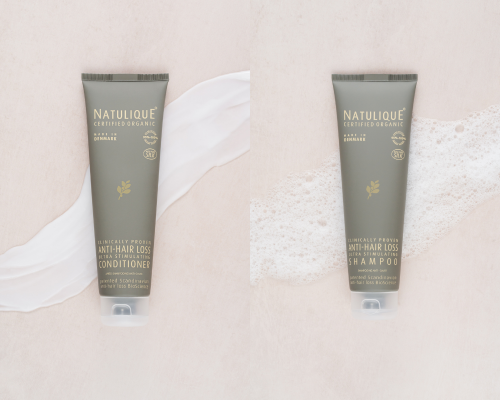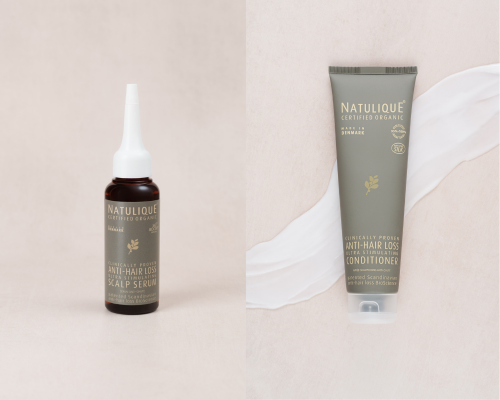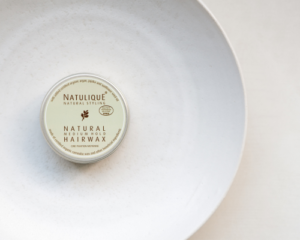Understanding the role and importance of anti-hair loss serum
Definition and general use of anti-hair loss serum
What is an anti-hair loss serum?
An anti-hair loss serum is a product specially designed to prevent and treat hair loss. It often comes in liquid or gel form and contains a combination of active ingredients that promote the health of the scalp and hair follicles. Unlike other hair care products such as shampoos and conditioners, serums are generally applied directly to the scalp for targeted action and rapid absorption.
Why use an anti-hair loss serum?
The main aim of the anti-hair loss serum is to strengthen hair roots and stimulate the growth of new follicles. It also helps to improve blood circulation in the scalp, promoting better nutrition of hair follicles. Regular use of an anti-hair loss serum can therefore significantly reduce hair loss, while increasing hair density and strength.
The effectiveness and scientific explanation of the anti-hair loss serum
Active ingredients and their effects
Anti-hair loss serums often contain a variety of active ingredients that contribute to their effectiveness. Among the most popular are:
- Minoxidil : A vasodilator that increases blood flow to hair follicles.
- Biotin : A B vitamin that strengthens keratin, the structural protein of hair.
- Caffeine : Stimulates hair growth by prolonging the anagen phase of the hair cycle.
- Keratin : Repairs and strengthens existing hair fibers.
- Plant extracts : Like aloe vera and rosemary, which soothe and nourish the scalp.
The serum's action on the scalp and hair follicles
The anti-hair loss serum works in three main phases:
- Penetration : The active ingredients penetrate deep into the scalp thanks to their light, concentrated formulation.
- Stimulation : Ingredients like minoxidil and caffeine stimulate hair follicles and increase blood circulation, helping to deliver more nutrients to hair roots.
- Reinforcement : Biotin and keratin strengthen existing hair and prevent breakage, while encouraging the growth of new, thicker, stronger hair.
In short, choosing the right anti-hair loss serum depends on understanding its role, its composition and the biological processes it influences to strengthen and revitalize hair.

Selection criteria for a good anti-hair loss serum
Product composition analysis
The importance of natural, sulfate-free ingredients
When selecting an anti-hair loss serum, one of the first criteria to consider is the product's composition. Natural ingredients are preferable, as they reduce the risk of allergic reactions and scalp irritation. What's more, sulfate-free formulas are ideal because they don't strip the scalp of its natural oils, which are essential for healthy hair. Ingredients such as ginger extract, castor oil and nettle are often used for their circulation-stimulating and hair-strengthening properties.
It's also essential to check that the serum doesn't contain parabens, silicones or phthalates, controversial chemical compounds that can harm hair health in the long term. Vegan and non-animal-tested products are also environmentally and skin-friendly options.
Understanding the impact of different components on hair health
Each ingredient in an anti-hair loss serum plays a specific role in combating hair loss. For example:
- Hyaluronic acid : Moisturizes the scalp and prevents dryness, promoting an optimal environment for hair growth.
- Protein : Like keratin, they repair damaged hair and strengthen the hair fiber.
- Amino acids : Essential for creating new hair cells and repairing damage.
- Medicinal plant extracts : Soothe and nourish the scalp, promoting better absorption of essential nutrients.
A thorough understanding of these components can help you choose a serum that not only prevents hair loss but also improves its overall quality.
Consider hair type and specific problem
Selection of serums for different hair types (oily, dry, normal)
It's crucial to choose a serum suited to your hair type to maximize its effectiveness. For oily hair, opt for light serums based on eucalyptus or green tea, which regulate sebum production without weighing hair down. Protein-based serums may be too heavy for this type of hair.
For dry hair, opt for serums rich in natural oils such as argan, jojoba or coconut oil, which provide intense hydration and strengthen hair fibers. Serums enriched with plant butters, such as shea butter, are also recommended for deeply nourishing dry scalps.
For normal hair, a balanced serum containing a combination of strengthening and moisturizing ingredients is ideal. Serums with aloe vera and vitamins, such as vitamin E, are ideal for maintaining a healthy balance between hydration and strengthening.
Adapting the serum to the reason for the fall
Understanding the cause of hair loss is also key to choosing the right serum. If hair loss is due to hormonal reasons, a serum containing ingredients such as saw palmetto or fenugreek can help regulate hormonal levels and stimulate hair growth.
For hair loss caused by stress or nutrient deficiencies, serums containing vitamins and minerals such as biotin, zinc and vitamin B complexes are recommended. These ingredients provide the nutrients needed to strengthen hair roots and encourage hair growth.
For hair loss caused by mechanical or chemical damage, serums containing repair agents such as ceramides or hydrolyzed proteins can help rebuild hair structure and prevent future breakage.
Choosing an anti-ch
See also: How to curl your hair quickly?
The best hair loss serum brands on the market
Brands recognized for their effectiveness
Kerastase
Kerastase is one of the leading brands in professional hair care, and its anti-hair loss serums are no exception. The Kerastase Genesis by Kerastase, for example, is specially formulated to combat hair loss due to breakage and stress. Key ingredients include ginger root, aminexil and caffeine, which strengthen hair from the roots and stimulate growth. The brand's products are renowned for their proven effectiveness and their use in high-end hair salons.
Revita
Revita is another brand well known for its advanced scientific research and high-quality products. The serum Revita Hair Stimulating Serum uses nanotechnology to deliver active ingredients directly to hair follicles. Key components include apple stem cells, caffeine, and copper peptides, each with a key role in promoting hair growth and preventing hair loss. Revita is often recommended by dermatologists for people suffering from severe hair loss.
Vichy
The Vichy brand, known for its dermatological products, also offers an effective range of anti-hair loss treatments. The serum Dercos Aminexil Clinical 5 is an intensive treatment that works on several levels. The main ingredient, Aminexil, is a clinically proven anti-hair loss agent that helps anchor hair roots and improve density. In addition, the serum contains vitamins B5, B6 and arginine, which promote overall scalp health. This product is often appreciated for its skin tolerance and rapid efficacy.
Emerging brands to try
The Ordinary
The Ordinary is a relatively new brand, but one that has rapidly gained popularity thanks to its simple yet effective formulations. Their serum Multi-Peptide Serum for Hair Density aims to improve hair density with a combination of peptides, caffeine and green tea extracts. This serum stands out for its affordable price and the transparency of its ingredients. Although the brand is emerging, it has received positive reviews from satisfied customers and many beauty professionals.
Nanogen
Nanogen is a brand specializing in innovative products for thinning hair and hair loss. Their serum 7-IN-1 Hair Thickening Treatment combines seven clinically proven technologies to thicken hair and prevent hair loss. Hyaluronic acid, niacinamide and yeast extracts are some of the key ingredients that moisturize, nourish and stimulate hair follicles. Nanogen's growing popularity is largely due to its visible results in just a few weeks.
Factors to consider when choosing a brand
Reputation and user reviews
It's crucial to check a brand's reputation before buying an anti-hair loss serum. Check user reviews on reliable platforms and read the comments to get an idea of the product's effectiveness. User reviews can provide valuable information about potential side effects and the serum's actual effectiveness.
Research & Development
Brands that invest in research and development tend to offer more effective products. Hair loss serums from laboratories with a solid scientific base are often more effective. Check that the brand demonstrates its commitment to scientific innovation and ingredient transparency.
Certifications and clinical tests
Opt for brands whose products have been clinically tested and certified by dermatological authorities. Certifications such as ISO, organic labels or dermatological recommendations can also be indicators of quality and safety. Search
How to use an anti-hair loss serum effectively?
Recommended application methods
Scalp preparation
To maximize the effectiveness of your anti-hair loss serum, it's essential to start by properly preparing your scalp. Make sure your hair and scalp are clean. A gentle wash with a sulfate-free shampoo is recommended to remove impurities and sebum that could hinder absorption of the active ingredients. Next, gently towel-dry your hair, avoiding sudden movements that could lead to breakage.
Application method
Correct application of the serum is crucial. Use the dropper or pump bottle provided to apply the serum directly to your scalp. Separate your hair into sections to ensure that the product is applied evenly. Then gently massage your scalp with your fingertips for a few minutes. This massage stimulates blood circulation and helps the serum to be better absorbed by the hair follicles.
Frequency and timing
Daily vs. weekly use
The frequency of use of an anti-hair loss serum may vary according to the manufacturer's recommendations, but a daily application is generally recommended for optimal results. Some serums require twice-daily application, in the morning and evening, while others are formulated for night-time use only. Following your product's specific instructions is essential to make the most of its benefits.
Ideal time for application
The best time to apply your anti-hair loss serum depends on the advice given by the brand. However, an evening application before going to bed is often optimal. At night, your scalp is less exposed to external factors such as pollution and styling products, allowing the serum to penetrate and work more effectively. What's more, the cell regeneration process is generally more active during sleep, increasing the effectiveness of the treatment.
Combination with other products and treatments
Compatibility with other hair care products
It's important to check that your anti-hair loss serum is compatible with the other hair care products you use. Avoid layering too many products, as this can weigh down your hair and reduce the serum's effectiveness. For example, after applying the serum, wait a few minutes for it to be fully absorbed before applying other styling products such as mousses or styling gels.
Integration into a complete care routine
For best results, integrate the anti-hair loss serum into a well-balanced hair care routine. Use shampoos and conditioners specially formulated for hair loss to reinforce the serum's action. Nourishing hair masks, used once or twice a week, can also help restore moisture and strengthen hair.
FAQ
Question 1: How long does it take to see the results of an anti-hair loss serum?
In general, it takes between 3 and 6 months of regular use to see the first visible results.
Question 2: Is the anti-hair loss serum suitable for all hair types?
Yes, but it's important to choose a product specifically formulated for your hair type and your hair loss problem.
Question 3: Can an anti-hair loss serum be used during pregnancy?
It is advisable to consult a health professional before using hair loss serums during pregnancy.
Question 4: Are there any possible side effects to using anti-hair loss serums?
Some serums may cause irritation or redness. If adverse effects appear, discontinue use and consult a dermatologist.





